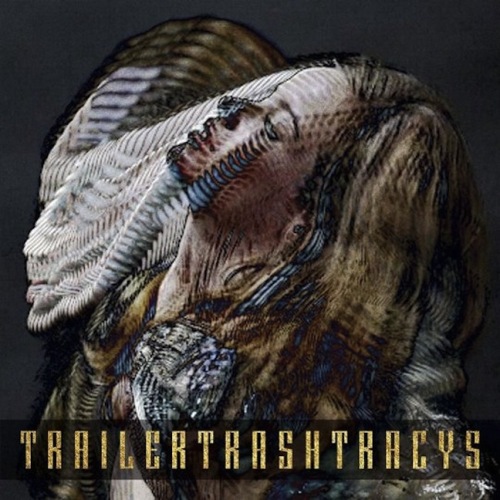Atmosphere can be a difficult thing to capture in pop. While a band which constructs releases around songs, pure and simple, will always be able to fall back on big choruses or catchy tunes, those who avoid the easy pay-off in favour of an attempt at something as vague and impressionistic as a general ambience have a much more difficult job, especially if they choose to keep the basic three-minute pop song template that Trailer Trash Tracys adopt. But that’s what they aim for on their debut, Ester: ten not particularly distinct songs with the most ethereal and vague of aims.
Their references, of course, are impeccable. Trailer Trash Tracys take the breathy chanteuse-type vocals of a post-Velvets Nico (although without the Germanic accent), allied with the in-the-red pop of the Jesus and Mary Chain and the oppressive isolation of French coldwave, to fashion a kind of languid dream-pop, all swooping vocal lines and programmed drums pushed to distortion. In aim, it’s all a bit reminiscent of a band like To Kill a Petty Bourgeoisie, deconstructing the dreamy aesthetic with distorted noise. At times, such as on early B-side and easy standout “You Wish You Were Red,” it’s a winning combination, with echoed-out vocals and guitars spreading washes of sound across a harsh drum-machine canvas, but too often it becomes a kind of formulaic painting-by-numbers. Because that’s the easy pitfall of trying to capture an atmosphere: it’s comparatively simple to create a kind of facsimile, by picking out bits and pieces of other records which have achieved it (in this case, the frequently-cited inspiration of Angelo Badalamenti’s music from Twin Peaks, which provides a lot of the nostalgic elements), but less easy to create something new and original which really nails the feeling in a way which can sustain interest for 40 minutes. What you end up with is a kind of musical shorthand, which points to all of the right references but ulitmately struggles to be anything more than background music.
That’s not to say Ester isn’t a pleasant listen: rather, there’s a lot to enjoy in the simplicity of the arrangements and the strung-out beauty of the vocals. But there’s not a lot of variation of either sound or song construction, with at least three songs using very similar arrangements of guitar arpeggios – when they do expand a bit, such as with the churchy organ of “Dies in 55,” the results are usually more interesting. Add to that a tendency to stick quite closely to one idea – only “Strangling Good Guys” really develops over the course of three minutes, which pushes it up a notch – and the songs can tend to become indistinguishable. The best songs here are the ones with a bit more going on, such as opener “Rolling – Kiss the Universe,” a kind of sound-collage, all synth flourishes and echoing noise.
But with a record which aims so clearly for feel over content, the risk is that it simply becomes background music; unfortunately, the lack of variation makes Ester all too ephemeral and insubstantial. While it’s not an entirely unsuccesful record, they need to either develop their songwriting more or simply go a bit further out texturally before they can really hold attention over a full album.

